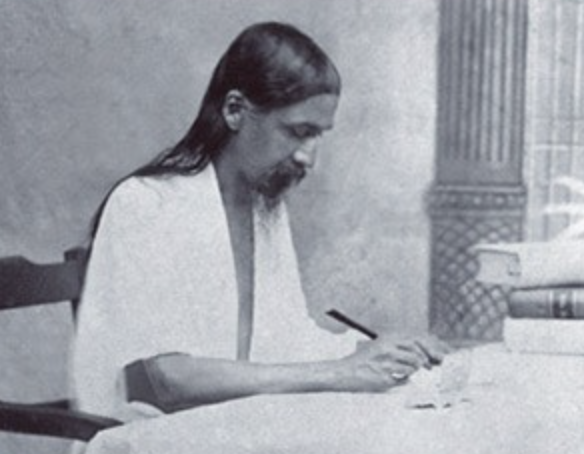Many spiritual seekers in today’s world dismiss the need to develop the mind and its inherent powers. The mind is seen as the obstacle to the attainment of the greater knowledge that accompanies spiritual development. This understanding is rooted in the larger belief that spiritual growth implies a separation and abandonment of the life in the world, a belief that took hold with the ascendancy of Mayavada and similar schools of thought around the world that placed primacy on spiritual realisation at the expense of the development of the inherent powers of the mind to develop and refine the life in the world.
This belief is however not universal. It must be noted that Christian monasteries were a hub of learning and development during the Middle Ages. Tibetan monasteries and Buddhist centers of learning generally have worked to develop powerful mental capabilities. Ancient India was noted for its spiritual focus, but also for advances in mathematics, science, art, medicine, architecture and philosophy, as well as many other topics taken up by the mind of the time. Jewish leaders and scholars pursued their spiritual development alongside intensive mental development. The Islamic world was also considered a leader in many fields, with much of the knowledge passed on to the Europeans, which eventually led to the Renaissance and the development of European mental culture. Thus, in ancient times, there was no negativity surrounding the development of mental powers, even among those who followed various religious and spiritual paths. There was a balanced and integrated view of the inner with the outer life. This understanding was however mostly lost for centuries and led to an artificial division between the mind and the spirit.
On the other side, the focus on development of the mind has been taken up by many, particularly in the modern age, as a denial of spiritual or religious practices. The emphasis among those holding this view is on taking the mind as far as it can go, developing powers, procedures and abilities that help the mind solve the problems confronting humanity. It has even gone to the extent of developing what is now called “Artificial Intelligence”, apparently to make up for a lack of real intelligence we find in this over-emphasis on the mind, the imbalances such an over-emphasis cause, and the unintended consequences of such an approach in terms of the way we deal with each other, and the world in which we live.
Sri Aurobindo and the Mother make it clear that in their view that spiritual realisation is the basis and foundation of true understanding that is based in oneness and which brings harmony, balance and goodwill to our lives; while at the same time, each of the powers and instruments of the human being, including the powers of the mind, have their essential role and purpose in the manifestation and should be developed, honed, refined and perfected in order to be capable of expressing the spiritual truths, and manifesting the divine intention in the world.
The Mother notes: ”Take an example. You are in your body with your deepest ideal but you find yourself before a school class and you have to teach something to the students. Well, this light is up there, this light of consciousness, but when you have to explain to your class the science you have to teach, is it more convenient to have a fund of knowledge or will the inspiration be such that you will not need this fund of knowledge? What is your personal experience?… You find, don’t you, that there are days where everything goes well — you are eloquent, your students listen to you and understand you easily. But there are other days when what you have to teach does not come, they do not listen to you — that is, you are bored and are boring. This means that in the former case your consciousness is awake and concentrated upon what you are doing, while in the second it is more or less asleep — you are left to your most external means. But in this case, if you have a fund of knowledge you can tell your students something; if you have a mind trained, prepared, a good instrument responding well when you want to make use of it, and if you have also gathered all necessary notes and notions all will go very well. But if you have nothing in your head and, besides, you are not in contact with your higher consciousness, then you have no other recourse than to take a book and read out your lesson — you will be obliged to make use of someone else’s mind.”
Sri Aurobindo and the Mother, Our Many Selves: Practical Yogic Psychology, Chapter 6, Some Answers and Explanations, pp. 174-175

